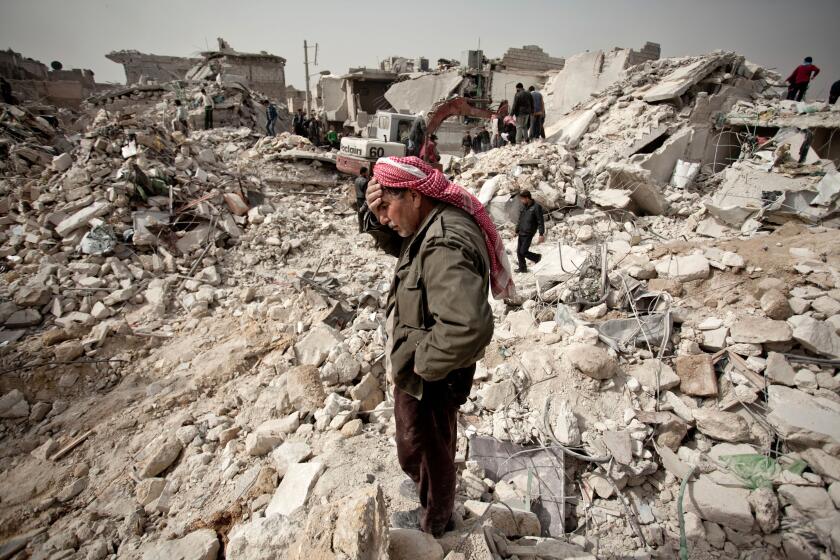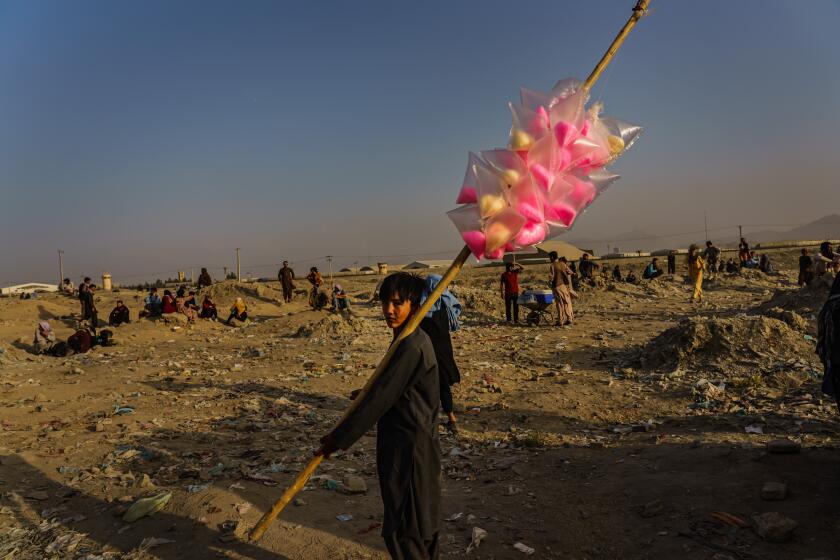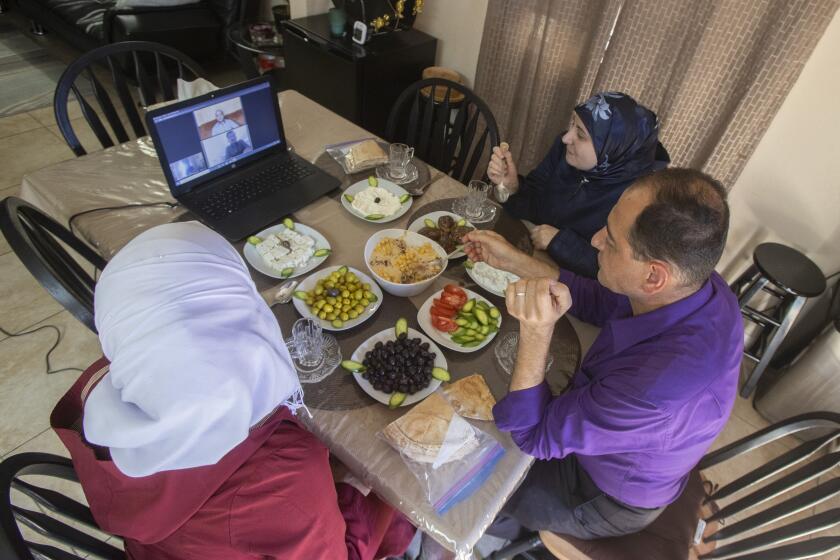This refugee novel knows it can’t change the world
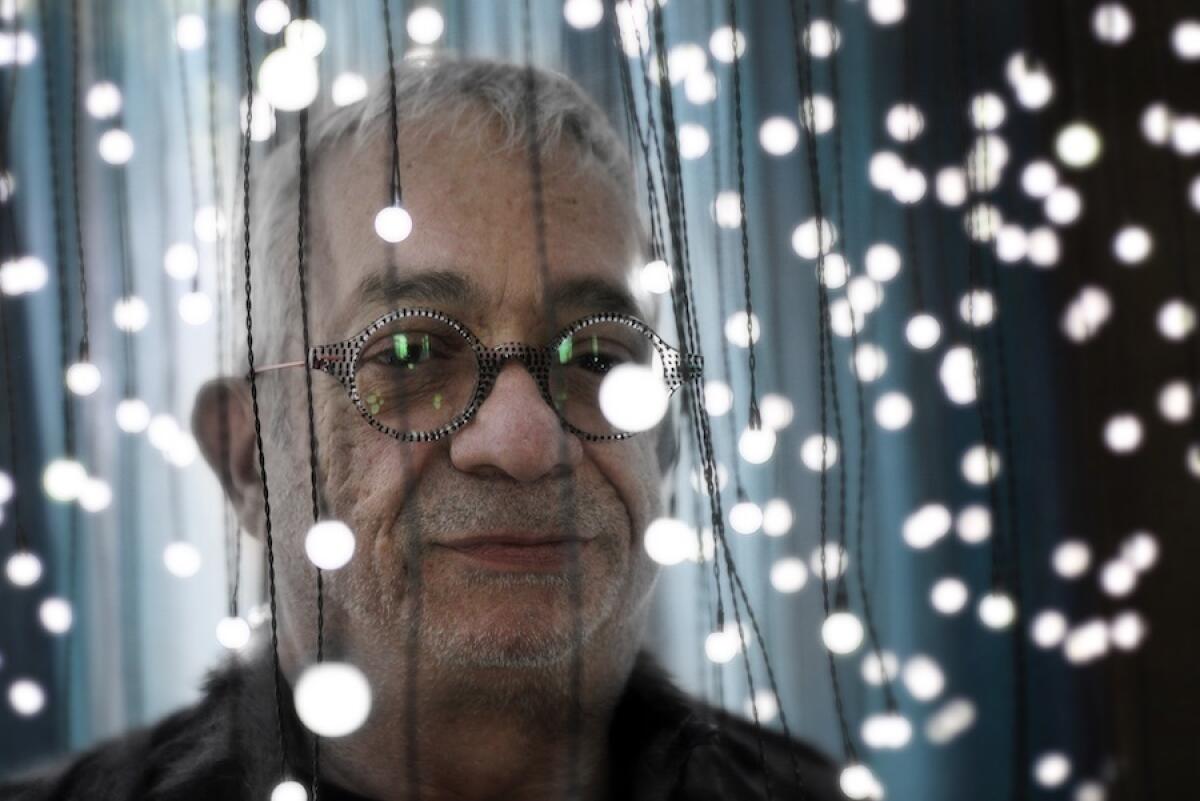
On the Shelf
The Wrong End of the Telescope
By Rabih Alameddine
Grove: 368 pages, $27
If you buy books linked on our site, The Times may earn a commission from Bookshop.org, whose fees support independent bookstores.
In recent years, the writer Rabih Alameddine has visited Syrian refugees in his native Lebanon and the Greek island of Lesbos. By his own admission — in a fine 2017 essay titled “Hope and Home” — he approached his visits deeply naive. Perhaps, he thought before departing from his home in San Francisco for his first trip, the children in the camps would enjoy talking about soccer? One refugee woman flung his questions back in his face: “If I talk with you, will anything change?” He had only one answer to that.
Still, he wrote, “if nothing else, I could be a witness.” Witnessing, and the question of how best to express what you’ve witnessed, is at the heart of his seventh novel, “The Wrong End of the Telescope.” He’s plainly decided that earnest, eat-your-vegetables social realism is inadequate; it would be no better than the journalism Westerners have diligently ignored since Syria’s civil war began a decade ago. But a sense of futility is equally inadequate, and Alameddine has no taste for the magical-realist variants or high-flown lyricism attempted by other novelists when writing about refugees.
So “Telescope” is a peculiar novel, intentionally — a prismatic, sui generis story that’s unafraid of humor while addressing a humanitarian crisis, threading a needle between that urge to witness and the recognition that doing so may be pointless.
“Roundabout of Death,” Syrian author Faysal Khartash’s first book translated into English, plumbs the pain and monotony of a devastating civil war.
Alameddine’s guide through this challenge is Mina, a trans woman doctor who arrives on Lesbos at the urging of a friend. (She’s Lebanese and married to a woman, and an early wisecrack about a “Lebanese Lesbian in Lesbos” gets the easy joke out of the way.) Her expectations are quickly upended. Volunteers are abundant but grotesquely interested in posting selfies with the refugees, and she’s at a loss for where to start helping. A woman, Sumaiya, arrives with what looks like late-stage liver cancer. But Mina is ill-equipped to treat or even confidently diagnose her amid the camp’s chaos.
Sumaiya, and Mina’s efforts to help her, give the novel something of a spine. But “Telescope” avoids any single organizing principle. In brief chapters, Mina relates pieces of her past life, interwoven with her observations of the refugees: her marriage and practice in Chicago; and her upbringing in Lebanon, where she was disowned by most of her family after transitioning. She also addresses an unnamed friend, a writer who closely resembles Alameddine, who visited the refugees a few years prior and struggled to describe it. “Did you approach this like you do your novels, just start and figure things out along the way?” Mina writes, hinting at the very approach this novel takes.
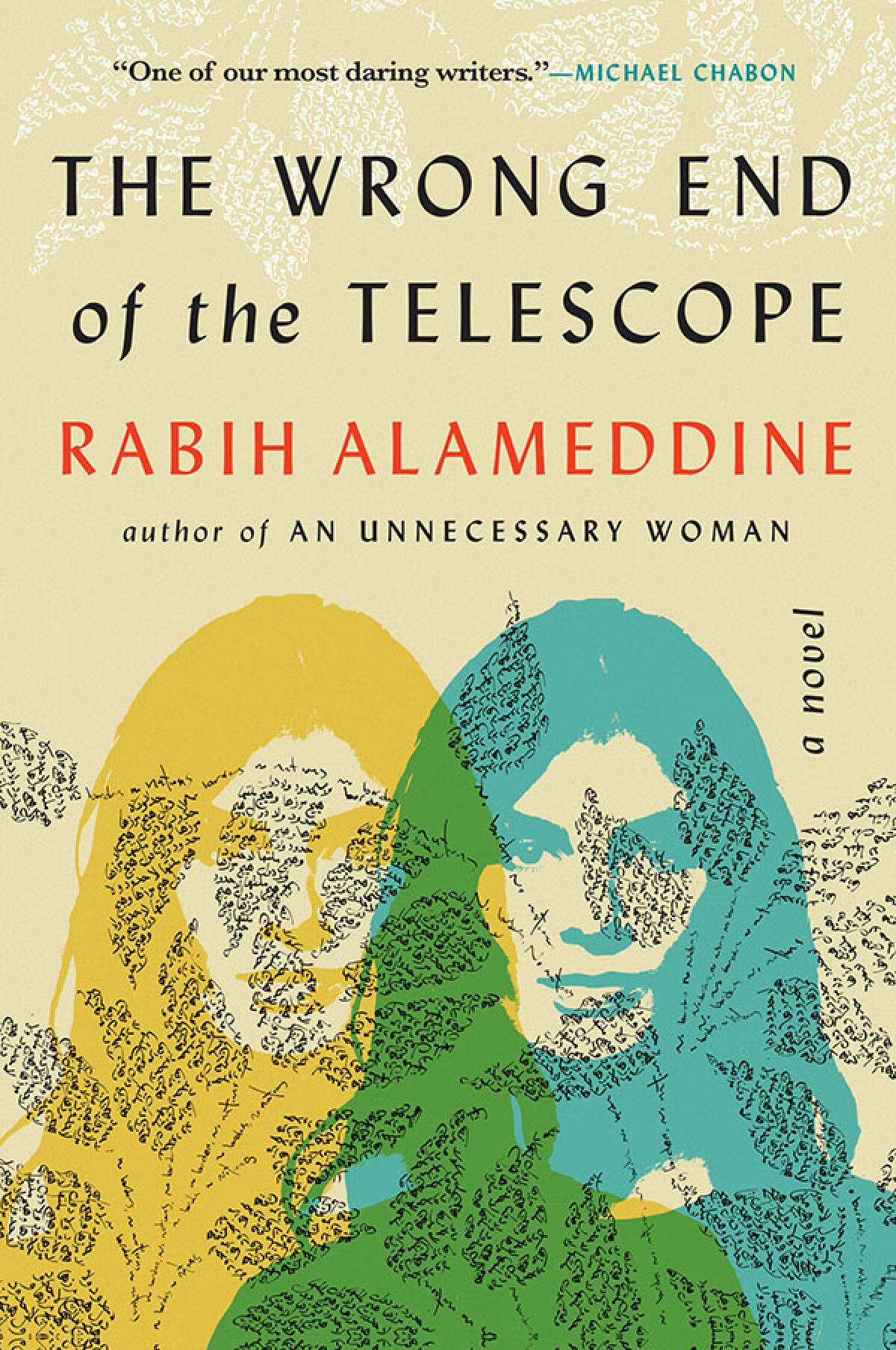
Much of Alameddine’s fiction is built on fractured storytelling. The narrator of his 2001 novel, “I, the Divine,” keeps revising the first chapter of her life story, uncertain how to tell it properly. His 2014 breakthrough, “An Unnecessary Woman,” was narrated by a Lebanese translator filtering her life through war stories, personal history and others’ fictions. That novel thrived on its variety of registers, becoming a National Book Award and National Book Critics Circle finalist. But his approach can get messy; his 2016 novel, “The Angel of History,” tried on so many rhetorical devices to contemplate faith and death that it felt maddeningly centerless.
Here, though, Alameddine finds a consistent tone. Mina is clear-eyed about the crisis, noting that “European nations were trying to figure how to stop the refugees from entering without appearing monstrous for doing so.” Money, medicine and basic considerations are in short supply. But Mina also has an irreverent streak and dark humor that undercut prejudices against the refugees — or anyone from the Middle East. She laughs at the notion that her writer friend could be a suspected terrorist: “Look at you. Building any kind of explosive device would ruin your manicure.” The chapter titles tend to wink at the reader: “How to Become a Westerner,” “How to Trans in Raqqa,” “Avoid Getting Liver Cancer If You Can,” “But How Butch Are You?”
From ‘Shock and Awe’ to the death of Bin Laden, U.S. networks treated the war as a distant spectacle. Overseas, it was brutally, frightfully close.
All of which signals that telling this story in a linear way, with well-worn gestures of compassion, would not suffice. Sumaiya is experiencing a crisis atop a crisis, but Alameddine wants to keep medical or political solutions at a distance. Most urgent for the refugee is clinging to her dignity. “She had no control over her life or that of her family,” he writes. “God, Fate, bombs, the government, Assad, the disease, Daesh, little boys with machine guns ... everything and everyone had more control over what happened to her. She’d had it. Enough. She wanted autonomy.”
So does Mina, amid her shifting identities in relation to home, family and gender. So does her writer friend, gay and a survivor of the AIDS era. And so do you too, right? In “Telescope,” Alameddine attempts to universalize Mina’s experience on Lesbos, but not out of a callow urge to suggest that her dilemmas — or yours — are comparable to the Syrians’. But if the solution to the crisis resides in empathy, a reminder of our own travels and our own uncertainty might be a meaningful step.
Or, as doctors are trained to think, it does no harm. Blind optimism and pat solutions are for other novels. The prevailing mood here is resignation, but of a gimlet-eyed sort, rooted in an unwillingness to give up entirely. The answer is somewhere, but not exclusively in a book. Toward the end, Mina chastises her writer friend. “When has writing explained anything to you? … Keys, if they even exist, darling, are not found in literature.” But what better way to show why we keep looking, hoping against hope?
Athitakis is a writer in Phoenix and author of “The New Midwest.”
The Alsidnawis came to San Diego in 2016, but they have been separated from son Ahmad for nearly a decade.
More to Read
Sign up for our Book Club newsletter
Get the latest news, events and more from the Los Angeles Times Book Club, and help us get L.A. reading and talking.
You may occasionally receive promotional content from the Los Angeles Times.
